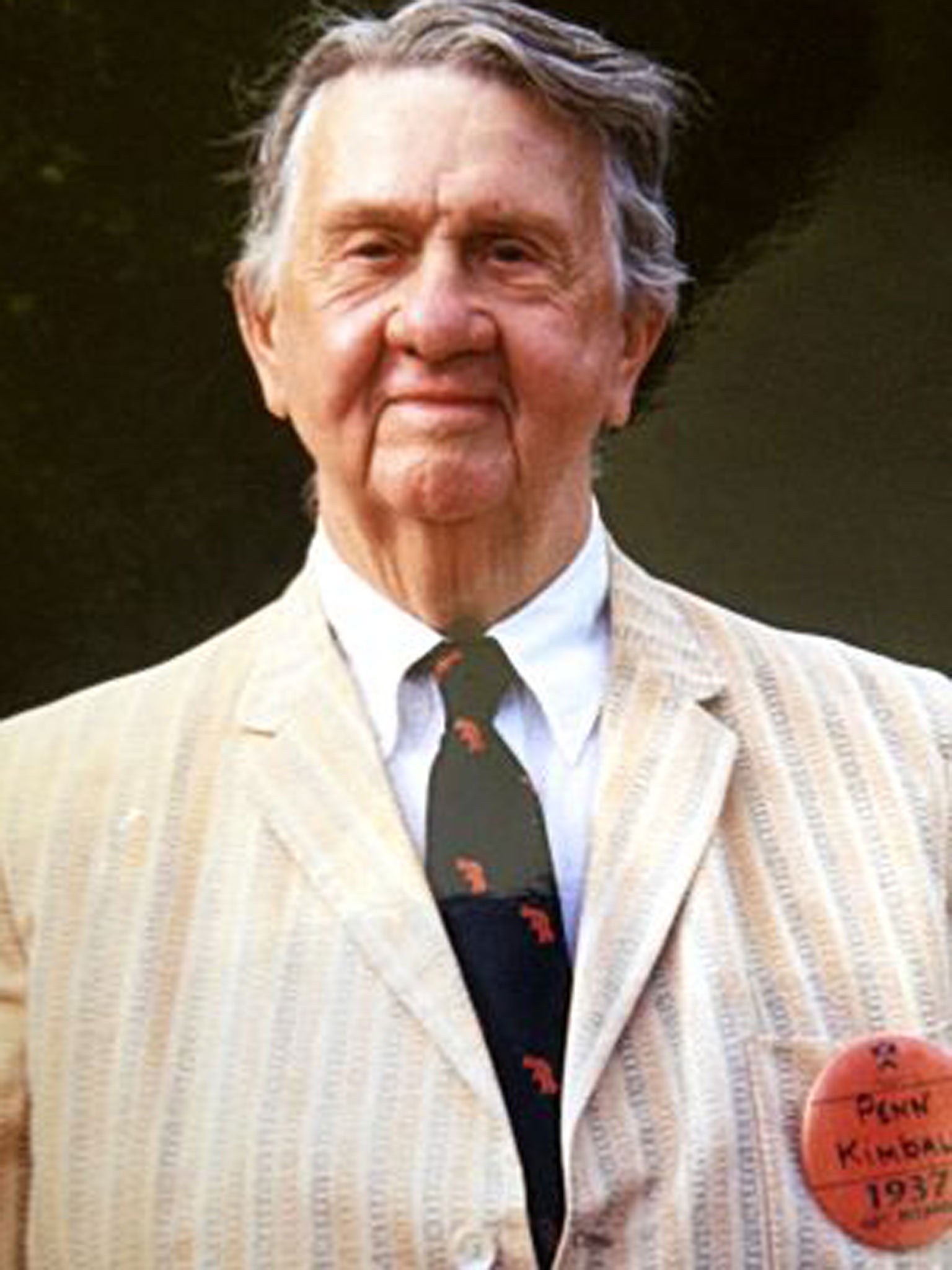Penn Kimball: Journalist who sued the US government after learning that he had been secretly declared a security risk

Your support helps us to tell the story
From reproductive rights to climate change to Big Tech, The Independent is on the ground when the story is developing. Whether it's investigating the financials of Elon Musk's pro-Trump PAC or producing our latest documentary, 'The A Word', which shines a light on the American women fighting for reproductive rights, we know how important it is to parse out the facts from the messaging.
At such a critical moment in US history, we need reporters on the ground. Your donation allows us to keep sending journalists to speak to both sides of the story.
The Independent is trusted by Americans across the entire political spectrum. And unlike many other quality news outlets, we choose not to lock Americans out of our reporting and analysis with paywalls. We believe quality journalism should be available to everyone, paid for by those who can afford it.
Your support makes all the difference.Penn Kimball was a journalist and academic who sued the US government in the 1980s after he learned that he had been secretly declared a security risk decades earlier. A journalist in the 1940s and 1950s, with stints at Time, the New Republic, the New York Times and CBS TV, he became a professor at Columbia's Graduate School of Journalism in 1959.
What he didn't know until decades later was that the State Department, the CIA and the FBI had compiled secret dossiers in which he was called a "definite security risk." In 1977, under provisions of the relatively new Freedom of Information Act, Kimball filed a request for any materials the government had about him. After delays of months and sometimes years, the boxes began to arrive.
"I was stunned," Kimball wrote in his 1983 book The File. "I simply had no idea that for more than half of my life my name had been on file in Washington as a dangerous radical, a disloyal American, a national security risk, a subversive 'too clever' to be caught holding a membership card in the Communist Party."
Kimball was the image of a stalwart member of US society: an American footballer at Princeton, Rhodes scholar, Marine Corps captain during the Second World War, Ivy League professor. In 1946, he turned down a State Department assignment to Saigon because he had accepted an offer from Time. But investigations continued for years without his knowledge. As he pored over the documents later, Kimball saw comments from unnamed sources suggesting that he had been cosy with communists when he was a journalist. His jobs with the New York Times and with the Democratic governors Chester Bowles and Averell Harriman were cited as evidence of leftist leanings.
Kimball believed the files sank his chances for a seat on the Federal Communications Commission in the early 1960s and for academic fellowships. "There's nothing more precious to a man than his character and reputation," he said in 1983. "And what the government did is take that away from me."
What truly infuriated him was a CIA packet he received in 1982 indicating that his wife, a real estate agent, was also a security risk. The documents arrived on the day of her funeral. A documentary about Kimball was shown on PBS, and in 1984 he filed a $10 million lawsuit against the government to clear his name. In 1987, the State Department, the CIA and the FBI agreed to purge their files if Kimball would drop his lawsuit.
Penn Townsend Kimball, journalist: born New Britain, Connecticut 12 October 1915; married 1947 Janet Fraser (died 1982; one daughter), 1985 Julie Ellis (one daughter); died Chevy Chase, Maryland 8 November 2013.
Join our commenting forum
Join thought-provoking conversations, follow other Independent readers and see their replies
Comments